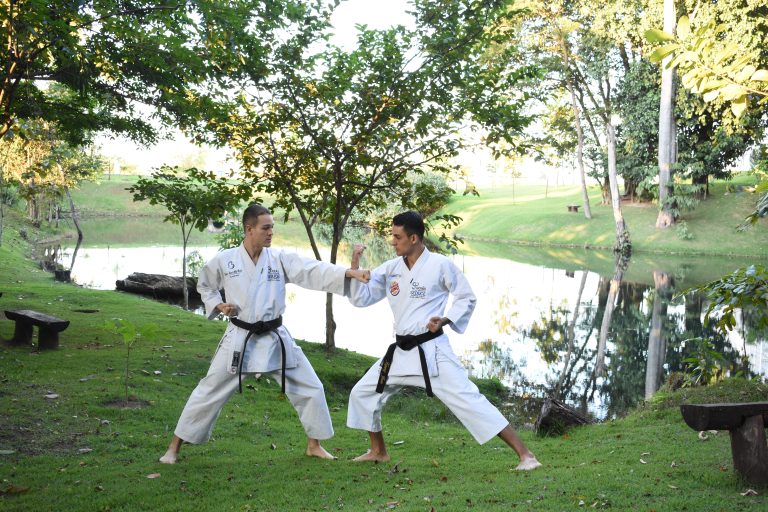Can You Do Karate After Hip Replacement?
Hip replacement surgery is a common procedure that is performed when a person’s hip joint becomes damaged due to injury, arthritis, or other conditions. The aim of hip replacement surgery is to relieve pain and stiffness and restore mobility. After the surgery, patients are often advised to avoid high-impact activities such as running and jumping to prevent dislocating the new hip joint. This leads to the question – can you do karate after hip replacement surgery?
Karate is a martial art that requires a lot of physical effort, including kicking, punching, and jumps. The impact can be high, and it involves the use of the hips. So it is crucial to know whether a person can perform karate after hip replacement surgery.
In this article, we will explore whether it is possible to do karate after hip replacement surgery and what precautions you should take to perform it safely.
Understanding Hip Replacement Surgery
Hip replacement surgery is a complex procedure that involves replacing the damaged hip joint with an artificial joint. The surgery is typically performed under general anesthesia, and the patient will need to stay in the hospital for a few days after the surgery.
During the surgery, the surgeon will remove the damaged cartilage and bone from the hip joint and replace it with an artificial joint made from metal, ceramic, or plastic. The aim is to restore the movement in the hip joint and reduce the pain and stiffness that is associated with hip problems.
Risks Associated with Hip Replacement Surgery
As with any surgery, hip replacement surgery has risks. Although less common, there can be complications such as infection, blood clots, and nerve damage. Additionally, post-surgical problems such as dislocation of the new joint can occur. Hence, it is crucial to follow the precautions that you are given after the surgery to avoid problems. This includes avoiding high-impact activities like running and putting stress on the new joint.
The Impact of Karate on the Hips
Karate is a sport that involves a lot of kicking, jumping, and pivoting. This puts a significant strain on the hips and can be challenging for those who have had hip replacement surgery. To perform karate after surgery, the individual needs to have fully rehabilitated and strengthened their hip joint before attempting physical activities. This involves going through a physical therapy program that is focused on restoring the strength and stability of the hip joint.
Can You Do Karate After Hip Replacement Surgery?
The answer to the question – Can you do karate after hip replacement surgery? – depends on several factors, such as the patient’s overall health, the success of the surgery, and rehabilitation, and the patients‘ pain levels. A person doing karate after hip replacement surgery should follow some guidelines, such as:
Wait to Start Karate Practice Until the Hip is Fully Healed
It takes time to recover from surgery and regain hip strength and mobility. The surgeon will advise you as to when it is safe to engage in the relevant activities, and in the case of karate, it is usually between 6 to 12 months after the surgery.
Always Stretch and Warm-Up Before Engaging in Any Physical Activity
Stretching and warming up before engaging in any physical activity are essential, especially when it involves martial arts. Proper warm-ups ensure that muscles get enough blood oxygen and are flexible enough to handle the stress of karate activity.
Start Slowly and Gradually Introduce Higher-Intensity Activities
After getting a green light from the surgeon, and after some physical therapy, the person should start doing Karate activities with low intensity and gradually increase the level of physical activity as the strength and the mobility of the hip improve. The goal should be to choose activities that put less stress on the hips first and work up to the more challenging movements gradually.
Seek Advice from Experts
Anyone considering doing Karate after hip replacement surgery should talk with their doctor and physical therapist to create an activity plan. They can make sure that the chosen martial art activities are safe and suitable to the patient’s recovery timeline and physical condition.
Can You Do Karate After Hip Replacement?
Understanding Hip Replacement Surgery
Hip replacement surgery is a common procedure used to replace a damaged or injured hip joint with an artificial joint. The surgery is usually performed on older adults, as hip joint problems tend to occur more frequently with age. The procedure can be done under general anesthesia or spinal anesthesia, and typically takes several hours to complete.
After a successful hip replacement surgery, patients must be cautious about resuming activities that could cause damage to the new joint. One such activity is karate, a martial art that involves a lot of kicking, jumping, and other high-impact movements. In this blog post, we’ll answer some of the most frequently asked questions about karate after hip replacement surgery.
Can You Do Karate After Hip Replacement Surgery?
The answer to this question is not a straight forward one. After hip replacement surgery, many orthopedic surgeons will advise patients to avoid high-impact activities, including karate. However, it is possible to practice karate and other martial arts after hip replacement surgery, provided you take the necessary precautions and receive clearance from your doctor.
How Soon After Hip Replacement Surgery Can You Practice Karate?
The recovery timeline after hip replacement surgery varies depending on the individual patient and the extent of the surgery. However, many surgeons recommend that patients wait at least 3-6 months before resuming any high-impact activities, including karate. During this recovery period, patients are typically advised to engage in gentle low-impact exercises, such as walking and swimming, to help rebuild strength and mobility in the hip.
What Precautions Should You Take When Practicing Karate After Hip Replacement?
If you decide to practice karate after hip replacement surgery, it’s essential to take certain precautions to protect your artificial joint. Here are some tips to keep in mind:
- Consult with your orthopedic surgeon before starting any martial arts training.
- Avoid high-impact movements, such as jump kicks and flying kicks, which can put excessive force on the hip joint.
- Choose a dojo that emphasizes control and technique rather than brute force.
- Wear protective equipment, including knee and elbow pads.
- Listen to your body and stop practicing if you experience any pain or discomfort in the hip joint.
What Are The Risks Of Practicing Karate After Hip Replacement Surgery?
While it is possible to practice karate after hip replacement surgery, there are some risks associated with this activity. The most significant risk is the possibility of dislocating the artificial hip joint, which can be painful and require additional surgery to repair.
Other potential risks of practicing karate after hip replacement surgery include:
- Fracture of the bone around the artificial joint
- Loosening or wear of the artificial joint
- Infection in the hip joint
If you experience any pain or discomfort during karate training, make sure to discuss this with your orthopedic surgeon right away.
The Bottom Line
Karate can be a physically demanding martial art that requires a lot of strength, flexibility, and coordination. While it is possible to practice karate after hip replacement surgery, it is essential to take the necessary precautions to protect your artificial joint. Always follow your doctor’s instructions, listen to your body, and stop practicing if you experience pain or discomfort. By taking these steps, you can enjoy the many benefits of karate without putting your artificial hip joint at risk.
Can You Do Karate After Hip Replacement Surgery?
Hip replacement surgery is a common procedure performed to improve the quality of life for people with severe hip pain and limited mobility. However, one of the concerns that arise for karate enthusiasts after surgery is whether they can resume their martial arts training without any complications. In this article, we will answer the question, can you do karate after hip replacement surgery? We will also provide you with some tips on how to safely resume martial arts training after hip replacement surgery.
Understanding Hip Replacement Surgery
Hip replacement surgery is a procedure that involves removing damaged hip joint and replacing it with an artificial joint made of metal or ceramic materials. This surgery is performed to alleviate hip pain and improve mobility caused by severe arthritis, fractures, or other conditions that affect the hip joint. Hip replacement surgery is often recommended when other treatments such as medication, physical therapy, and lifestyle changes are not effective in relieving hip pain and improving mobility.
Can You Do Karate After Hip Replacement Surgery?
The answer is not straightforward. Whether you can do karate after hip replacement surgery mainly depends on several factors, such as your age, overall health, the reason for hip replacement surgery, the extent of hip damage, and the type of karate training you want to pursue.
It is essential to consult your surgeon about your plans to resume karate training after hip replacement surgery. Your surgeon will evaluate your condition and advise you on the appropriate time to return to physical activities such as martial arts training. In general, surgeons recommend waiting at least six to twelve months after hip replacement surgery before resuming high-impact activities such as karate.
Tips for Resuming Karate Training After Hip Replacement Surgery
Resuming karate training after hip replacement surgery requires proper preparation to reduce the risk of injury and ensure a smooth transition back to physical activity. Here are some tips to help you safely resume your karate training after hip replacement surgery:
1. Follow Your Surgeon’s Advice
As mentioned earlier, it is crucial to follow your surgeon’s advice when resuming physical activities such as karate after hip replacement surgery. Your surgeon will evaluate your condition and advise you on the appropriate time to resume your karate training. They may also recommend physical therapy to help you regain strength and flexibility in your joint.
2. Start Slowly
When you start resuming karate training after hip replacement surgery, it is vital to start slowly and gradually increase the intensity and frequency of your training over time. You can start with low-impact karate training that involves less jumping, kicking, and punching to reduce the stress on your hip joint. As you progress and your hip joint becomes stronger, you can then increase the intensity of your training.
3. Use Protective Gear
Using protective gear such as padded mats and appropriate karate gear can help reduce the risk of injury during karate training. It is also crucial to wear supportive shoes that provide stability to your hip joint and prevent falls.
4. Listen to Your Body
It is essential to listen to your body when resuming karate training after hip replacement surgery. If you experience any pain or discomfort in your hip joint, stop training and rest until the pain subsides. Continuing to train through pain can worsen your condition and increase the risk of injury.
5. Stay Active Outside of Karate Training
It is essential to stay active outside of karate training to improve your overall health and assist in the recovery of your hip joint. Low-impact activities such as swimming, walking, and cycling can help improve fitness levels and provide an alternative to high-impact karate training.
Conclusion
In conclusion, resuming karate training after hip replacement surgery is possible, but it requires proper preparation and caution. It is essential to follow your surgeon’s advice, start slowly, use protective gear, listen to your body, and stay active outside of karate training. With these tips and a bit of patience, you can safely resume your karate training and enjoy the physical and mental benefits of martial arts.
Inhaltsverzeichnis






